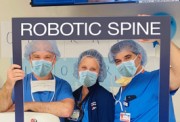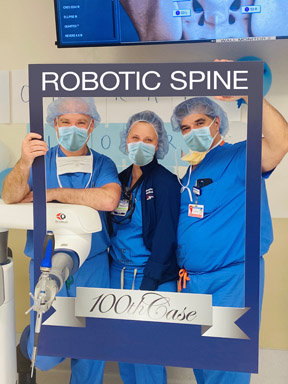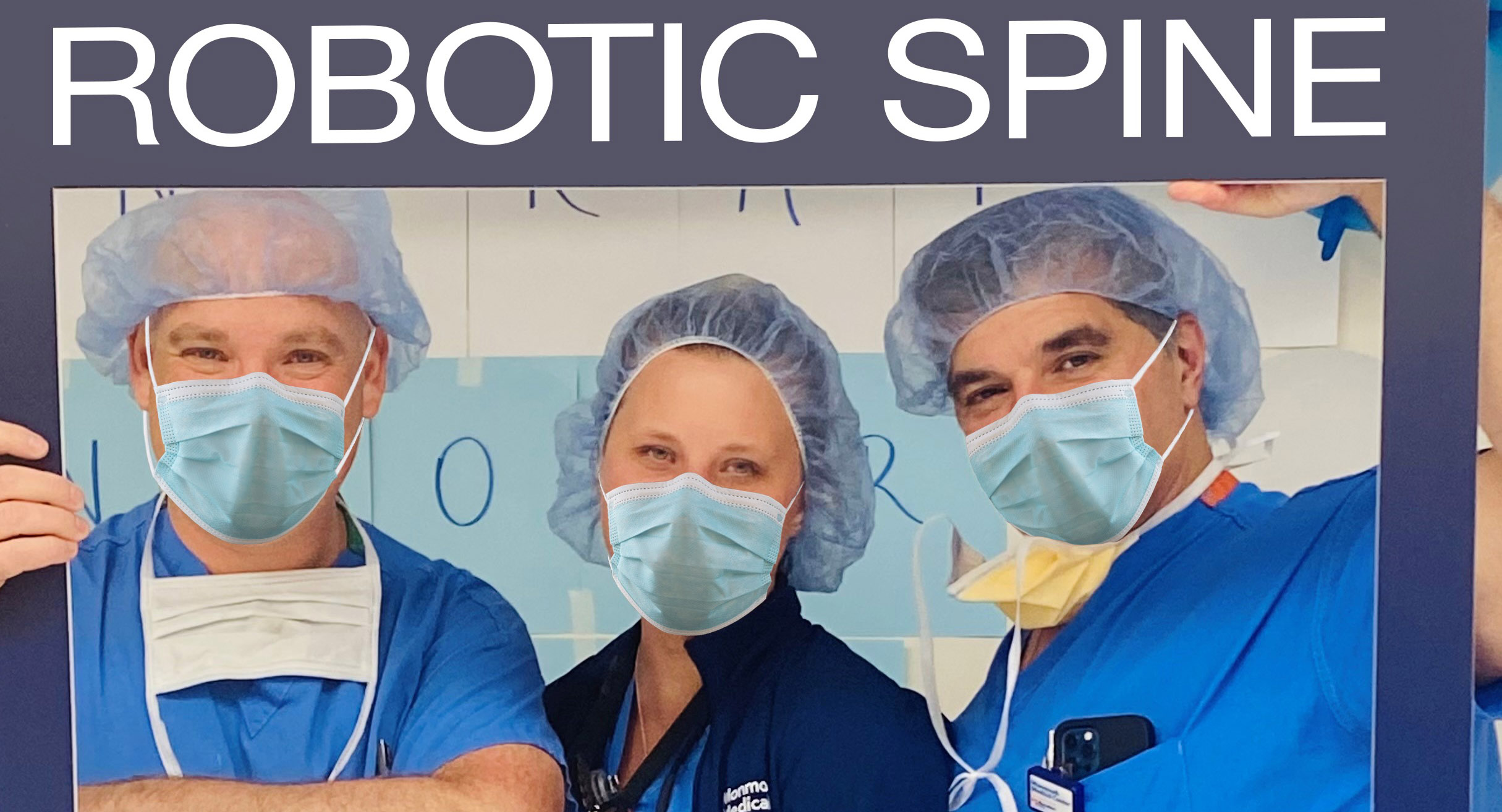
Celebrate Independence Day weekend with a pop up market at Pier Village
June 30, 2021
Congregation Torat El’s Popular ‘Meet the Author’ Series Continues on Zoom
July 2, 2021 Long Branch – Reaching 100 of anything is usually a significant milestone, but it is always an extraordinary achievement in medicine, particularly when it’s the number of patients who receive a life-changing procedure.
Long Branch – Reaching 100 of anything is usually a significant milestone, but it is always an extraordinary achievement in medicine, particularly when it’s the number of patients who receive a life-changing procedure.

Monmouth Medical Center spine surgeons Marc Menkowitz, M.D., (left) and Steve Paragioudakis, M.D., with nurse practitioner Courtney Ellenberger.
Recently, two Monmouth Medical Center (MMC) spine surgeons, Marc Menkowitz, M.D., and Steve Paragioudakis, M.D., reached the century mark of patient cases that used cutting-edge GPS-based robotic technology for minimally invasive spine surgery.
MMC was the second hospital in New Jersey to introduce the robotic spine technology, and while dozens of surgeons use the system, few can match Drs. Menkowitz and Paragioudakis’ expertise and experience with it. They perform the majority of their cases together, using the robot to treat patients who suffer from debilitating conditions like degenerative disc disease and spinal stenosis, as well as damaged discs, scoliosis and other back problems.
The robotic spine system combines a robotic arm with computer-assisted navigation. CT scan and X-ray images of the spine are taken prior to a procedure. These images are used to create a surgical plan, which helps the physician guide the robotic arm to a specific area of the spine.
The surgeon is able to view the procedure on a monitor, which provides real-time feedback. With this technology, the procedure is more accurate and less invasive than traditional surgery, according to Dr. Menkowitz. “We can be precise to the millimeter,” he says. “Once we navigate to where we want to be in the spine, the system locks us into the surgical pathway.”
Patients benefit from this high-tech surgical system in several ways. Because the procedure is so precise and involves small incisions, there’s less blood loss, tissue damage and scar tissue. Patients recover more quickly and with less pain than with traditional spine surgery, says Dr. Menkowitz. As a result, hospital stays tend to decrease by about a day, on average.
Another advantage: The patient is exposed to less radiation during the surgery because fewer X-rays need to be taken to guide the procedures.
Since MMC introduced the technology in October 2019, the system has been used in more than 100 spine surgeries performed by Drs. Menkowitz and Paragioudakis—and they are seeing positive results.
“This is the wave of the future,” says Dr. Paragioudakis. “I think all spine surgeries will be done this way eventually.”
To learn more about robotic surgery at Monmouth Medical Center, call 888.724.7123.
###






